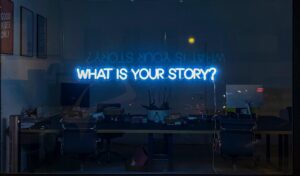
‘R’ is for Remember You are Not Alone
June 28, 2023
‘D’ for Decide: Fear or Excitement
July 12, 2023This is the fourth in a series, first published in 2021, in which I explore how to move forward when your journey is difficult. The series began with an introduction and has covered the first two of six TRUDGE practices for long-term resilience: Tell the Truth and Remember.
TRUDGE – being resilient as you move through a challenging time in your life. Challenging times bring up difficult emotions and strong reactions. When you find yourself easily undone or powerfully provoked, it is time to unpack your history. Taking a step back to understand your own reactions will help you move forward.
Unpacking your history gives insight to better understand and face current difficulties. In last week’s post I recommended you reach out for help. Here I am recommending you reach in. Reflecting on your personal journey allows you to tap into your own wisdom. What past events are triggering an outsized reaction to your current circumstances? What coping skills have you used in the past? Consider your own history as you cope with your current challenge.
History as Trigger
Your body and brain remember so much, particularly anything that threatened your safety or well-being. These memories will be triggered during challenging situations resulting in thoughts, feelings, and actions that seem instinctive. Paying attention to them allows you to decide if they are indeed, helpful. Example: I had a minor conflict with someone and could not let it go. I was obsessed and ruminating. I sat with pen and paper to dump all my thoughts and feelings down. Then I took a break. Later, while doing laundry, I realized what the trigger was. This minor event was a reminder of a very bad relationship in my past. I wasn’t reacting to the current situation as much as to the past. My brain was perceiving this minor conflict as a major social threat, which it was not. This allowed me to let it go.
Other times the warning is accurate. A friend was ruminating about a family member who was acting distant. She kept talking and talking about it. I asked if this had happened before and what it meant. She started to tell me a million reasons why they might be busy. I asked her to take a slow breath and to think about this pattern of behavior. A silence in our conversation was followed by her slow, sad response. “It probably means he is using again.” In this case her trigger was correct, she was ruminating to avoid the current reality. Having a more realistic view of the situation allowed her to better plan her interactions with her family member.
Moving forward is made more difficult when you keep tripping over reactions and feelings tied to the past. When you react to events from your childhood your brain and body don’t always make the connection that you are now an adult. A situation may feel overwhelming because it terrified you as a younger person. Realizing that you now have adult skills and resources can be a huge relief. Other times a past event has taught you well to cope with a current difficulty. Your inner awareness will help you decide how to proceed from here.
History as Resource

When you consider your past also think about the times that were healing, happy, and satisfying. Difficult times often include inflection points when you must make decisions about what direction to take next. While you cannot go back to the past, you can look to your history for ideas that you might like to include in the future. Your past can also help you find ways to get relief in the present. What are some of the things you loved as a child? During times of stress simple pleasures such as coloring, model building, or swimming can be restorative. Are there childlike pleasures that you haven’t taken time for lately? Build these into your current or long-term plans.
Taking time to unpack your past allows you to gain wisdom from your own journey. Talk it out with a good listener. Daydream about a past time. Reflect through writing. You are the expert on your life journey.
Peace,
Laura A. Gaines
Explore learnmodelteach.com to learn about our course, Shrinking Anxiety to Grow Resilience.






